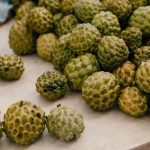
Tea During Pregnancy: Benefits and Precautions for Pregnant Women
Pregnancy is a very special time in every woman’s life, requiring extra care with health and nutrition. One of the most common questions among pregnant women is about the consumption of teas. While many infusions are considered healthy, not all are safe during pregnancy. In this article, we will clarify which teas are most beneficial for pregnant women, as well as those that should be avoided.
Benefits of Tea During Pregnancy
Drinking tea can offer various benefits during pregnancy, as long as the choices are made wisely. Many medicinal plants have therapeutic properties that can help relieve common pregnancy symptoms, such as nausea, insomnia, swelling, and even aid in breastfeeding.
Ginger Tea During Pregnancy
Ginger tea is known for its anti-inflammatory and antiemetic properties. It is especially useful in the first trimester to relieve morning sickness. A study published in the Journal of Obstetrics and Gynaecology showed that ginger can significantly reduce nausea symptoms in pregnant women. Additionally, some believe that ginger tea during pregnancy may help with dilation during labor, aiding in the body’s preparation, although it should be consumed with caution and under medical guidance.
Peppermint Tea
Peppermint tea is a safe and effective option for pregnant women, as it is known to aid digestion, relieve headaches, and reduce muscle tension, providing a sense of calm. However, it is important to consume it in moderation, especially for women prone to gastric reflux, as large amounts can cause heartburn. It is recommended that peppermint tea consumption during pregnancy be moderate and always under medical guidance to avoid any adverse effects. Professional supervision is essential to ensure the well-being of both the pregnant woman and the baby.
Rooibos Tea
Rooibos is an excellent alternative for all pregnant women wishing to avoid caffeine. Originating from South Africa, this natural plant is rich in antioxidants and helps with digestion. Moreover, it does not contain tannins, which can interfere with iron absorption, an essential nutrient during pregnancy. The absence of caffeine makes rooibos an ideal choice for nighttime consumption, promoting restful sleep.
Teas to Avoid During Pregnancy
While many teas and medicinal plants are beneficial, some should be avoided due to their potential adverse effects:
Chamomile Tea During Pregnancy
Chamomile tea is generally considered safe when consumed in small amounts during pregnancy. It is known for its calming properties and can help reduce stress and promote relaxation. However, excessive consumption of chamomile is not recommended, as some studies suggest that large amounts may be associated with uterine contractions. Therefore, it is advisable that consumption be occasional and always under medical supervision, ensuring the well-being of both mother and baby.
Cinnamon Tea During Pregnancy
Cinnamon tea, often used for its aromatic flavor and medicinal properties, should be consumed in moderation during pregnancy. While small amounts of cinnamon as a spice are generally safe, cinnamon tea in higher concentrations can stimulate uterine contractions, especially in early pregnancy. For greater safety, it is recommended to avoid consuming large amounts of cinnamon tea and consult a healthcare professional for specific guidance.
Fennel Tea
Fennel tea is known for its digestive benefits, but during pregnancy, it should be consumed with caution. This tea has estrogenic effects that can influence hormone levels. To avoid potential interference with fetal development, it is better to limit the consumption of fennel tea and discuss its use with a healthcare professional.
Black and Green Tea
Both black and green teas are popular options that contain caffeine. During pregnancy, it is important to monitor caffeine intake, as excessive consumption may be associated with a higher risk of insomnia, anxiety, and other discomforts. A balanced approach is to prefer decaffeinated versions or limit the amount of black and green tea consumed, ensuring that total caffeine intake remains within recommended limits.
Mate Tea with Lemon During Pregnancy
Mate tea with lemon is a refreshing and flavorful drink. However, since mate contains caffeine, it is important to consume it in moderation during pregnancy. Opting for decaffeinated versions can be a safe alternative. Lemon, on the other hand, is rich in vitamin C and can offer nutritional benefits, but its use should be balanced with the caffeine content in mate. Always consult your doctor for personalized guidance on caffeine intake and other components during pregnancy.
Safe Choices: Herbal Teas and Simple Plants
For pregnant women looking for a safe and relaxing tea experience, herbal teas and simple plants are undoubtedly the best options. These infusions are made from herbs, flowers, and fruits and do not contain any caffeine. They are naturally rich in nutrients and free of harmful active ingredients.
Safe Herbal Teas
- Berry Fruit Tea During Pregnancy: Rich in vitamins and antioxidants, it is a tasty and safe option. Berries are known for their antioxidant properties, which help combat oxidative stress.
- Lemon and Honey Tea During Pregnancy: Lemon peels can help strengthen the immune system and alleviate cold symptoms. Honey also has antibacterial properties that can be beneficial during pregnancy.
Simple Plants
- Raspberry Leaves: Known for strengthening the uterus, these can be consumed in moderation in the second and third trimesters. This tea is traditionally used to prepare the uterus for labor.
- Nettle Leaves: Rich in vitamins and minerals, nettle is beneficial but should be consumed in moderation and preferably under medical guidance. Nettle is rich in iron, which can help prevent anemia during pregnancy.
Teas to Aid Breastfeeding
According to some studies, after childbirth, certain teas composed of herbal blends can help increase breast milk production. Among the herbs most frequently used in these blends are lemon balm, fennel, anise, fenugreek, and chamomile. The likely explanation for this effect lies in the galactagogue properties (which promote the initiation and maintenance of milk production) present in these herbs, in addition to the increased liquid intake that drinking tea provides.
Final Considerations
The choice of tea during pregnancy can directly influence the well-being of both mother and baby. Opting for safe and beneficial teas can help alleviate common pregnancy discomforts, promoting a more peaceful experience. However, it is crucial always to pay attention to the quantities consumed and medical recommendations. Avoiding potentially harmful teas is equally important to ensure a healthy pregnancy. Pregnant women must consult their doctor or a nutritionist before introducing new teas into their diet. Every pregnancy is unique, and what may be safe for one person may not be for another.
When choosing tea during pregnancy, opt for herbal infusions, simple plants, and rooibos. These options are safe and offer additional health benefits. For more information, always consult a health specialist.
References
Smith, J. et al. (2020). Herbal teas during pregnancy: Benefits and risks. Journal of Obstetrics and Gynaecology.
Williams, R. (2019). Caffeine and pregnancy: Guidelines and considerations. Maternal Health Journal.









Sorry, the comment form is closed at this time.